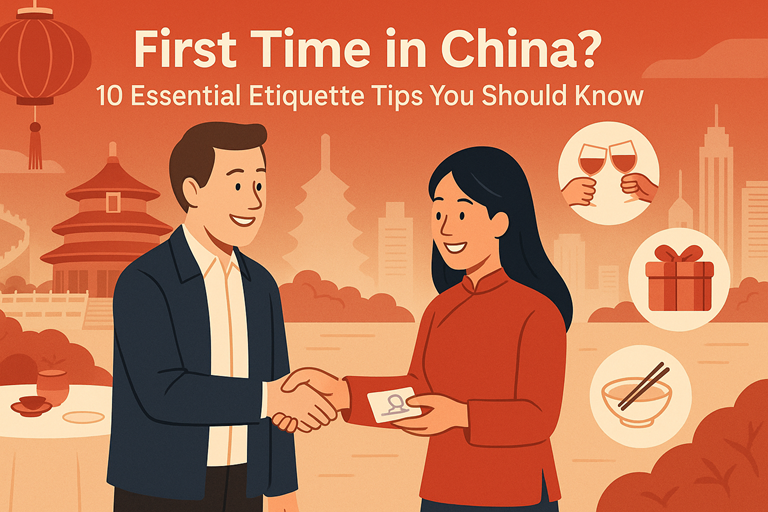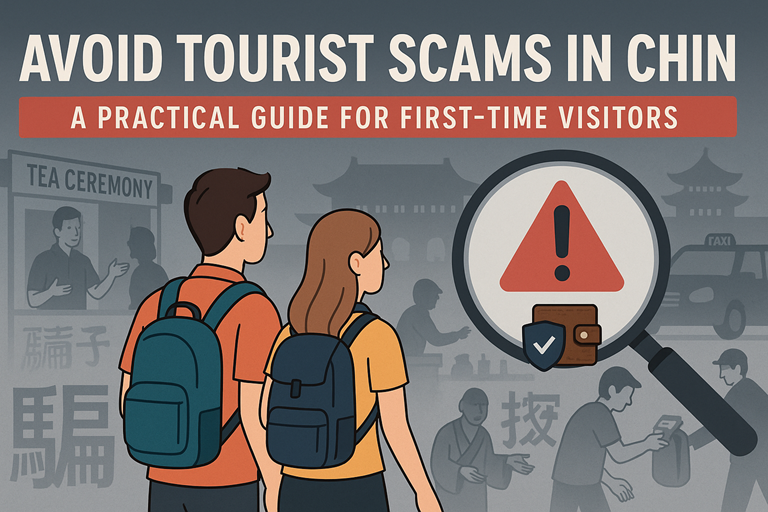“面子” (Mianzi) and “关系” (Guanxi):
Understanding Key Concepts in Chinese Culture
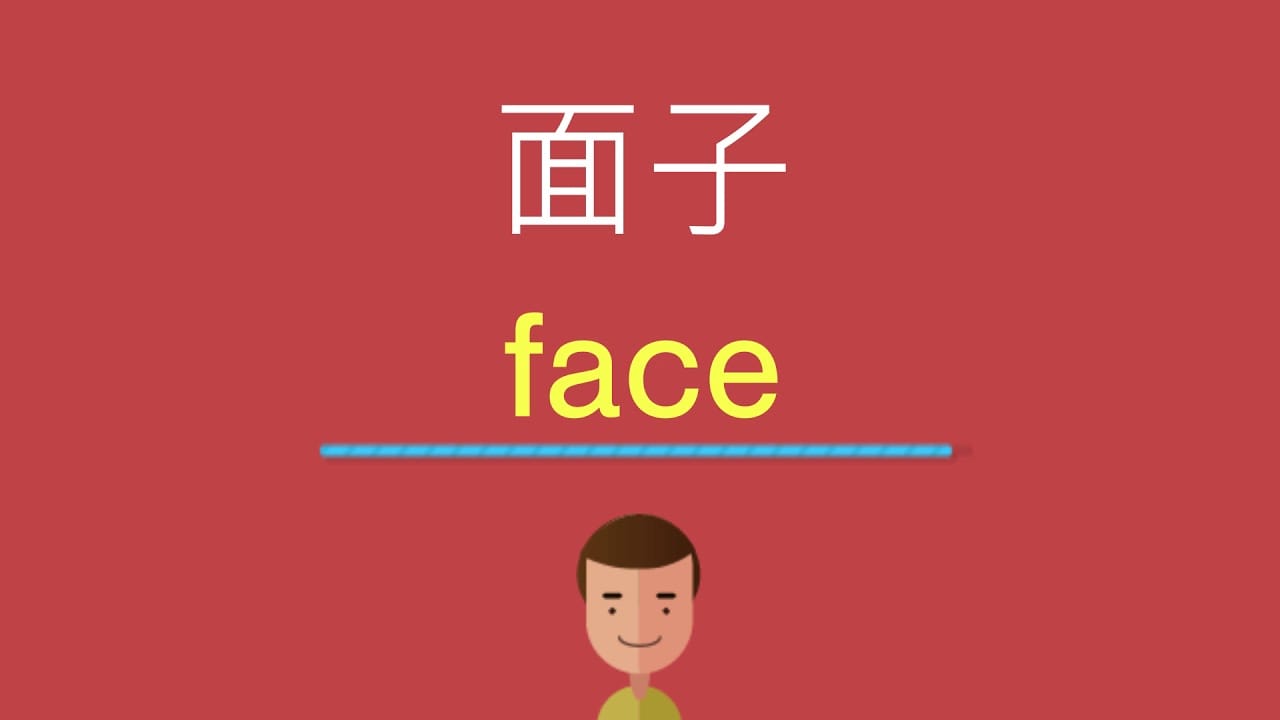
Understanding mianzi and guanxi provides a window into Chinese social dynamics
When venturing into China, beyond the language and the landmarks, lie subtle yet profoundly influential cultural concepts that shape social interactions, business dealings, and everyday life. Two of the most pivotal are “Mianzi” (面子), often translated as “face,” and “Guanxi” (关系), meaning “connections” or “relationships.”
Understanding these concepts, even at a basic level, can significantly enhance your experience as a visitor, help you avoid unintentional offense, and provide deeper insights into the Chinese way of life.
Part 1: Understanding “Mianzi” (面子) – The Concept of Face
“Mianzi” is far more than just the physical face; it’s a complex social currency representing an individual’s prestige, reputation, honor, social standing, and the respect they command from others. It’s about how one is perceived within their social network and community. Preserving one’s own face and giving face to others are paramount in Chinese society.
What Exactly is “Mianzi”?
Social Standing & Reputation: It’s the public image and social status one holds. This can be influenced by factors like wealth, education, position, achievements, and even the perceived success of one’s family members.
Honor & Dignity: It relates to personal integrity and the respect one is afforded. Losing face can bring shame not only to the individual but also to their family or group.
Dynamic and Relational: Face is not static; it can be gained, lost, given, or taken away through social interactions. It’s constantly being negotiated and affirmed in relation to others.
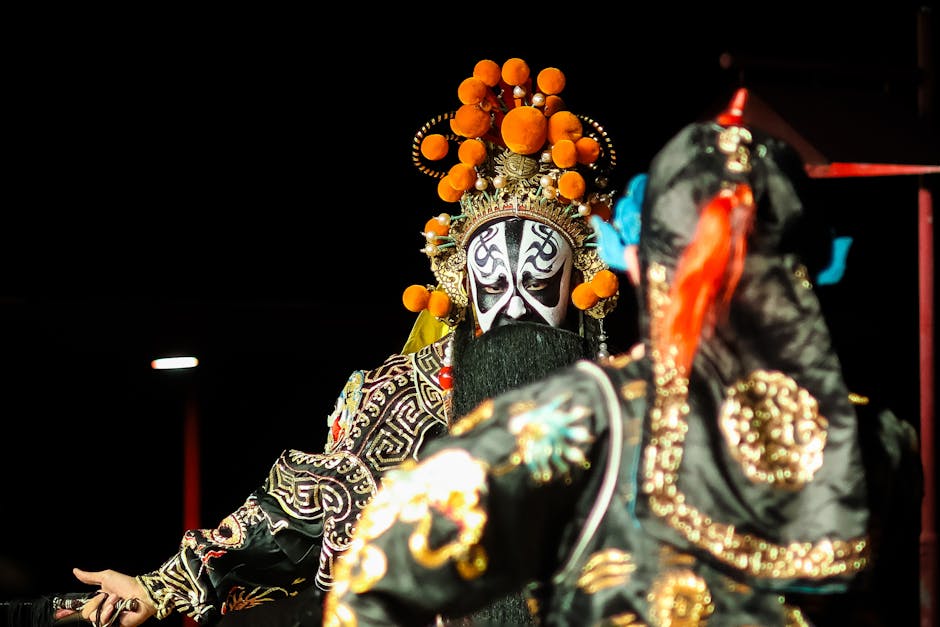
The Two Facets of Face
Lian (脸): Moral character and integrity. Losing lian implies fundamental moral failing.
Mianzi (面子): Social prestige and reputation. More about outward appearances and status.
Why is Mianzi So Important?
- Confucian Roots: Embedded in values emphasizing social harmony and proper conduct
- Group Orientation: Individual’s face is tied to family or social group
- Social Lubricant: Helps interactions run smoothly and avoid conflict
Giving Face (给面子 – Gěi Miànzi)
This involves actions that enhance another person’s reputation or show them respect. It’s a crucial way to build goodwill and strengthen relationships.
- Compliments: Offering sincere praise for achievements or skills
- Public Praise: Acknowledging contributions in front of others
- Deferring to Seniors: Showing respect for age and experience
- Accepting Hospitality: Graciously accepting invitations
- Asking for Advice: Showing you value their opinion
- Involving Someone: Including them in important events
- Thoughtful Gifts: That acknowledge their status

Exchanging gifts is an important way to give face in business contexts
Causing Loss of Face (丢面子 – Diū Miànzi)
Actions that embarrass, humiliate, or diminish someone’s social standing should be avoided at all costs.
- Public Criticism: Correcting someone, especially a superior, in front of others
- Pointing Out Mistakes: Even minor errors can cause embarrassment
- Direct Refusal: Flatly saying “no” to a request
- Ignoring Someone: Failing to show proper respect
- Making Someone Look Incompetent: Highlighting their failures
- Boasting Excessively: Can make others feel diminished
Mianzi in Everyday Tourist Interactions
Bargaining: Do so respectfully. If a vendor gives a “final price,” pushing too aggressively can make them lose face.
Accepting Invitations: If a local invites you for tea, accepting (even briefly) gives them face.
Complimenting Hosts: Complimenting food or hospitality gives face.
Dealing with Mistakes: A sincere apology (“对不起” – Duìbuqǐ) is appreciated.
Part 2: Understanding “Guanxi” (关系) – The Web of Connections
“Guanxi” (关系) literally translates to “relationships” or “connections,” but its cultural significance goes much deeper. It refers to a dynamic network of social connections and reciprocal obligations built on trust, mutual benefit, and often, a shared background or experience.
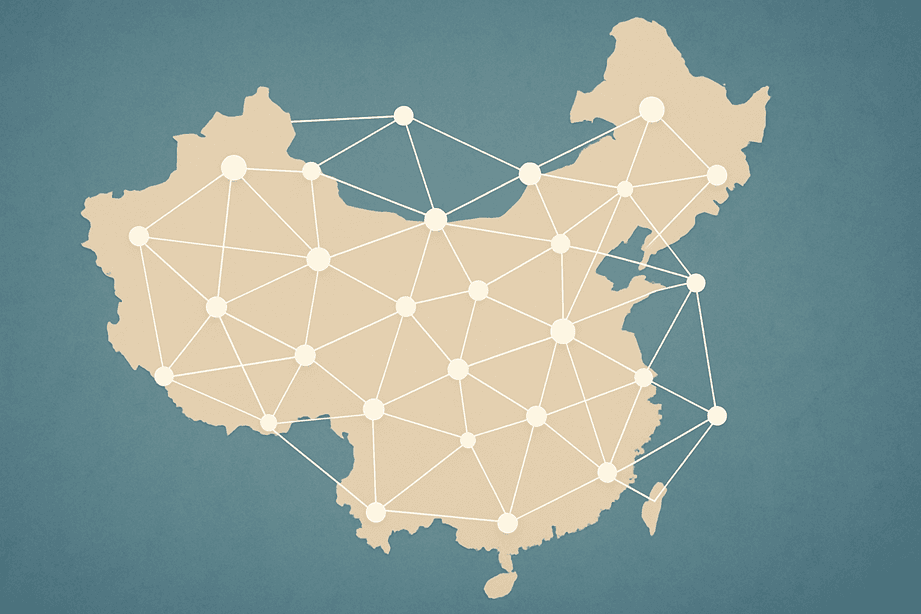
Guanxi represents the intricate web of relationships that underpin Chinese society
What Exactly is “Guanxi”?
A Network of Influence: Guanxi is about who you know and who knows you. It’s a web of interpersonal relationships that can be leveraged for assistance, information, or opportunities.
Reciprocity (人情 – Rénqíng): A core element of guanxi is “renqing,” which translates to “human feeling” or “favor.” If someone does you a favor, you are implicitly expected to reciprocate in the future.
Trust-Based: Strong guanxi is built over time through shared experiences, mutual respect, and proven reliability.
Long-Term Orientation: Guanxi isn’t about one-off transactions; it’s about cultivating long-term relationships that may span generations.
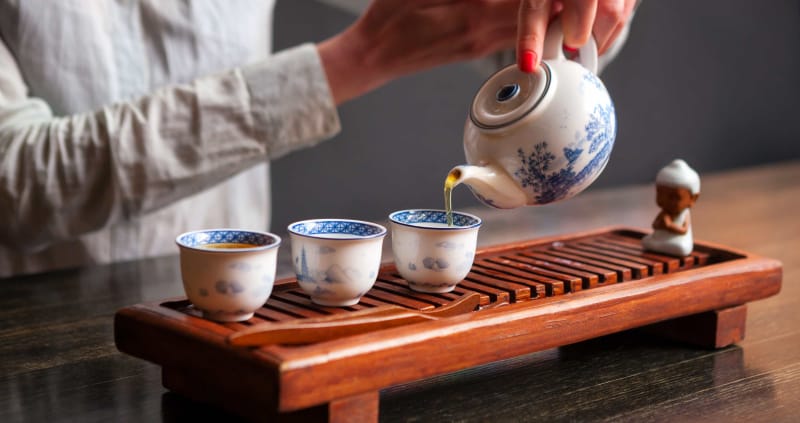
Shared experiences like tea ceremonies help build the trust essential for guanxi
How is Guanxi Formed and Cultivated?
Guanxi can be based on various commonalities:
- Family Ties: The strongest and most reliable form of guanxi
- Shared Locality: Coming from the same hometown or region
- Alumni Networks: Graduating from the same school or university (同学 – Tóngxué)
- Shared Workplace: Being colleagues or former colleagues (同事 – Tóngshì)
- Military Service: Having served together
- Introductions: Being introduced by a trusted mutual contact
Cultivating Guanxi
Guanxi requires ongoing nurturing through:
- Regular communication through appropriate channels
- Sharing meals (business banquets are particularly important)
- Exchanging gifts during festivals or important occasions
- Offering help when opportunities arise
- Remembering important dates like birthdays
- Showing genuine interest in their family and wellbeing
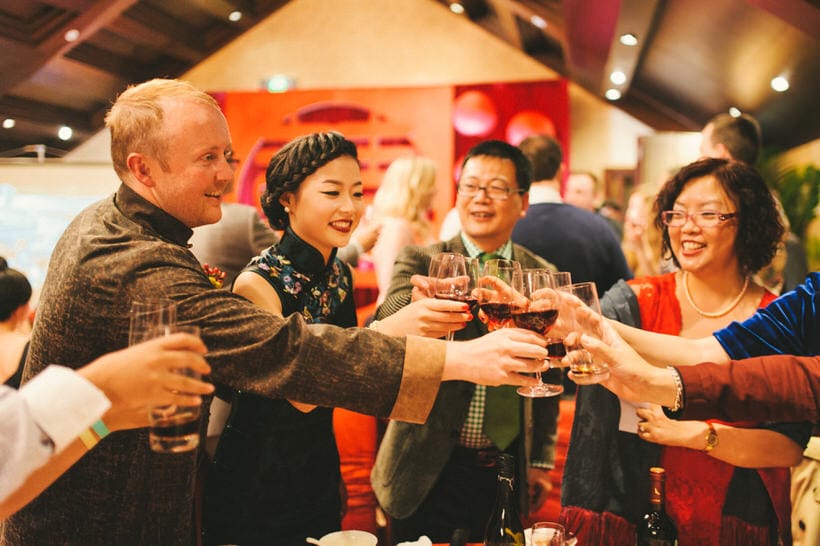
Business banquets are crucial for guanxi cultivation in China
The Importance of Guanxi in China
Navigating Bureaucracy: Can help cut through red tape and expedite processes
Business Success: Deals are often sealed based on trust rather than contracts
Career Advancement: Connections play significant role in opportunities
Problem Solving: First step when facing challenges
Access to Resources: Provides access to scarce opportunities
Social Capital: Enhances one’s overall standing in society
Guanxi for Foreign Visitors/Businesses
- Acknowledge its Existence: Understand it’s fundamental to Chinese culture
- Building Takes Time: Don’t expect deep connections overnight
- Leverage Local Partners: Work with those who have established networks
- Focus on Relationship Building: Prioritize rapport before business
- Intermediaries are Key: Introductions through trusted third parties
- Understand Reciprocity: Be prepared to return favors appropriately

Using intermediaries is often the most effective way for foreigners to begin building guanxi
Potential Downsides or Misunderstandings
Nepotism/Corruption: Can lead to favoritism when misused
Exclusivity: Makes it hard for outsiders to break in
Burden of Obligation: Reciprocal favors can feel demanding
Cultural Misinterpretation: Foreigners may misunderstand its nature
The Interplay of Mianzi and Guanxi
- Giving face helps build and strengthen guanxi
- Causing loss of face can damage guanxi
- Leveraging guanxi to help someone gives them (and you) face
- Strong guanxi often means having more mianzi
Practical Example:
When requesting a favor (relying on guanxi), approach it in a way that gives face by emphasizing their capability. If granted, they gain face, strengthening your guanxi and creating reciprocal obligation.
Practical Takeaways for Visitors
- Be Observant: Watch how Chinese people interact
- Prioritize Politeness: Basic respect goes a long way
- Show Gratitude: Acknowledge help and hospitality
- Don’t Expect Mastery: These are nuanced concepts
- Err on Formality: Better to be too polite than too casual
- Build Positive Interactions: Every polite exchange helps
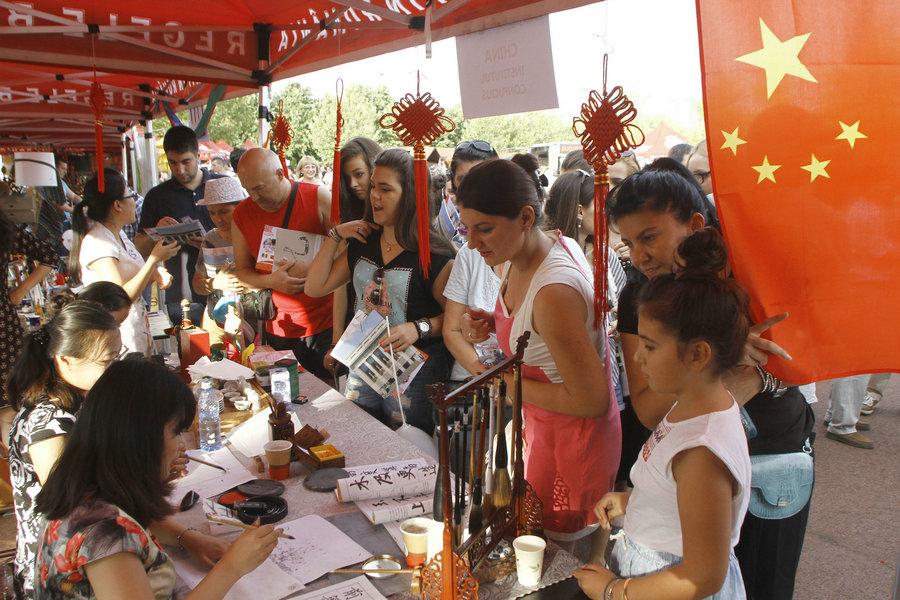
Cultural understanding begins with respectful interactions
Understanding mianzi and guanxi won’t make you an instant expert in Chinese culture, but it will provide you with a valuable lens through which to interpret social dynamics and engage more effectively and respectfully. It opens a window into the intricate and fascinating ways relationships are built and maintained in one of the world’s oldest continuous civilizations.
By appreciating these concepts, you’re better equipped to navigate your journey through China with cultural sensitivity and insight, whether you’re visiting as a tourist, conducting business, or building long-term relationships.
Enjoyed this article? Consider buying me a coffee to support more content like this!
💖 1 people have clicked to support this article.

